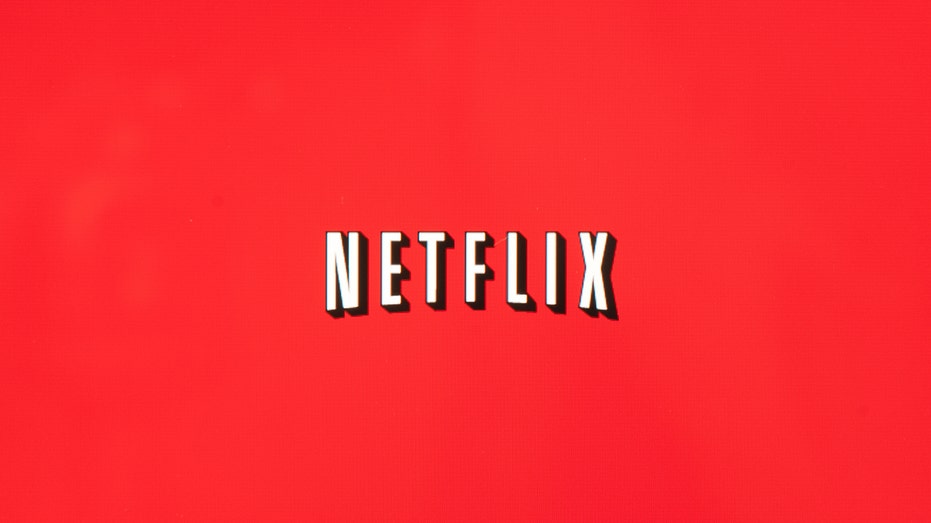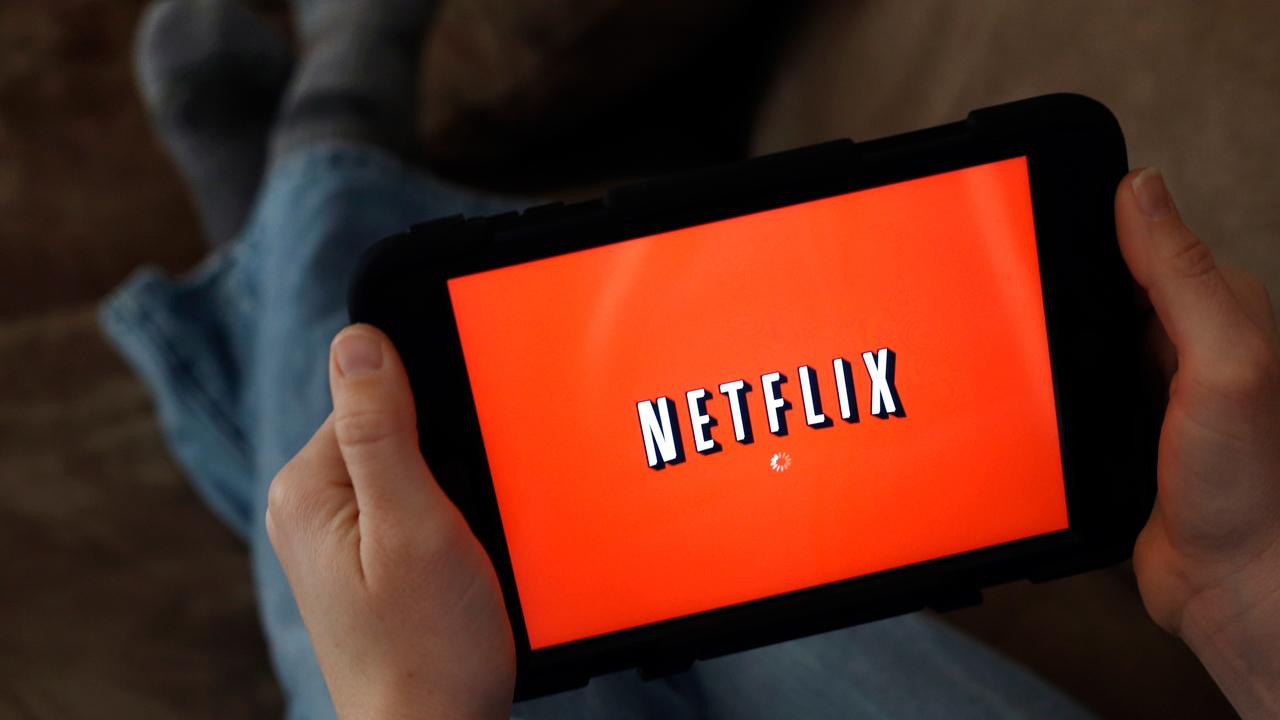Netflix: What to know about the streaming giant
In just a shiort time, Netflix has made history.
The California-based streaming service that has become synonymous with first dates has also become much of the world’s go-to entertainment source. Like any other media empire that’s been ingrained in pop culture, Netflix has its own story to tell.
Here are the top five things you should know about the company that transformed the way people watch movies and shows in numerous parts of the globe.

"Frederick, MD, USA - February 25, 2011: Studio product shot of an Apple iPad, 32 GB wi-fi model, isolated on black background with reflective surface. The iPad in this photo shows the Netflix app starting up. Landscape orientation."
1. How Netflix started
Netflix was co-founded by American entrepreneur Wilmot Reed Hastings Jr. and software executive Marc Randolph in 1997, which originally offered online movie rentals. The following year it launched DVD rentals along with the sales site, Netflix.com. By 1999 and 2000, the company debuted a monthly low-cost subscription service that provided unlimited DVD rentals and a personalized movie recommendation system that allowed user ratings.
In 2005, Netflix membership reached 4.2 million according the media giant’s self-reported numbers. At the start of 2019, The Hollywood Reporter declared Netflix had grown its subscriber base worldwide to 139 million. By April, Netflix increased that subscriber count by 10 million.
Hastings, who eventually became chief executive office of Netflix, used to tell news outlets that the conception of Netflix came to him after incurring a $40 late fee from Blockbuster. This tale can be seen in his profiles in Vanity Fair and Fortune. However, his co-founder Randolph set the record straight that the story was “convenient fiction” that showed customer how Netflix differed from other video rental services at the time, according to The Washington Post.
2. When Netflix went public
The rental company made its initial public offering in 2002 on the National Association of Securities Dealers Automated Quotations. During this time, Netflix said it had 600,000 members in the U.S.
According to a report by Market Watch on May 23, 2002, Netflix closed at $16.75 per share, which was “a gain of 12 percent over its $15 price.” The stock also opened at $16.19 and rose to a volume of 7.4 million.
At the end of the second quarter of 2019, Netflix experienced a stall in its subscriber growth, which translated to its earnings. However, representatives at Netflix cited the company’s lacking content releases and subscription hike during that period for the missed target.
GET FOX BUSINESS ON THE GO BY CLICKING HERE
“We don’t believe competition was a factor since there wasn’t a material change in the competitive landscape during 2Q, and competitive intensity and our penetration is varied across regions (while our over-forecast was in every region),” Netflix executives wrote in a shareholder letter. “Rather, we think 2Q’s content slate drove less growth in paid net [additions] than we anticipated.”
| Ticker | Security | Last | Change | Change % |
|---|---|---|---|---|
| NFLX | NETFLIX INC. | 82.20 | +1.33 | +1.64% |
3. Netflix and streaming
Netflix evolved its business in 2007 by introducing members to streaming, which allowed customers to ditch DVD rentals in favor of instant delivery on their personal computers. The reception wasn’t initially a warm one since Netflix’s “Watch Now” service only offered 1,000 titles, according to a review by Slate at the time. That offering was one percent of what was available in Netflix’s 70,000 DVD library.
Netflix built up that arsenal to become the streaming giant it is today, which includes monthly rotations of feature films, documentaries, popular TV shows, mini-series and more. A report by Variety in April 2019 listed Netflix’s current U.S. catalog as of at 4,000 movie titles 47,000 TV episodes—which it based off estimates from market research and analytics company Ampere Analysis.
A study conducted by Streaming Observer, an industry news site estimated that Netflix users watch 164.8 million hours of content per day collectively, which is equivalent to approximately 494.4 million GB of bandwidth each day if these figures are accurate.
Despite all this success in the streaming market, Netflix hasn’t abandoned the DVD rental game. According to a report by The Motley Fool in April, the media company still had 2.7 million DVD by-mail subscribers and made a $52 million profit from this service in its previous quarter.
4. Netflix and its expansion
A year after the streaming service’s debut, Netflix partnered with staple consumer electronic brands to provide users direct access to streaming via Microsoft’s Xbox 360, Roku and LG’s TV set top boxes and Samsung’s Blu-ray disc players. By 2009 and 2010, Netflix snagged partnerships with Sony’s PlayStation 3, internet-enabled TVs, Apple mobile devices and more.
Outside of device domination, Netflix began its international expansion in 2010 with its Canadian launch. A year later, it set roots throughout Latin America and the Caribbean. In 2012, Netflix went across the pond to provide service throughout Europe. By 2015, Netflix launched in Australia, New Zealand and Japan while continuing expansion into Mediterranean markets such as Italy, Spain and Portugal.
As of 2019, Netflix is available worldwide in over 190 countries.
5. Netflix and original content
Six years after Netflix became a streaming service, the company finally tried its hand at original programming. It kicked off the slate with four self-produced series, including “House of Cards,” “Hemlock Grove,” “Arrested Development” and “Orange is the New Black.”
In 2014, Netflix garnered 31 primetime Emmy nominations in drama, comedy, documentary and nonfiction special categories. “House of Cards” won three Primetime Emmy Awards, which made Netflix the first internet TV network to win an Emmy. By 2018, Netflix becomes the most nominated service at the Primetime and Creative Arts Emmy Awards with 112 nominations, and tied with HBO for most wins—taking home 23 accolades.
When it comes to feature films, Netflix debuted its first original motion pictures, "Beasts of No Nation" in 2015. Two years later, the streaming service won its first Oscar for the documentary short “The White Helmets.” Netflix accomplished this feat again in 2018 with an Oscar win for best documentary feature with “Icarus.”
CLICK HERE TO READ MORE ON FOX BUSINESS
News organization Quartz published a report at the beginning of the year that estimated Netflix released close to 1,500 hours of content in 2018 with their original series, movies and productions.




















